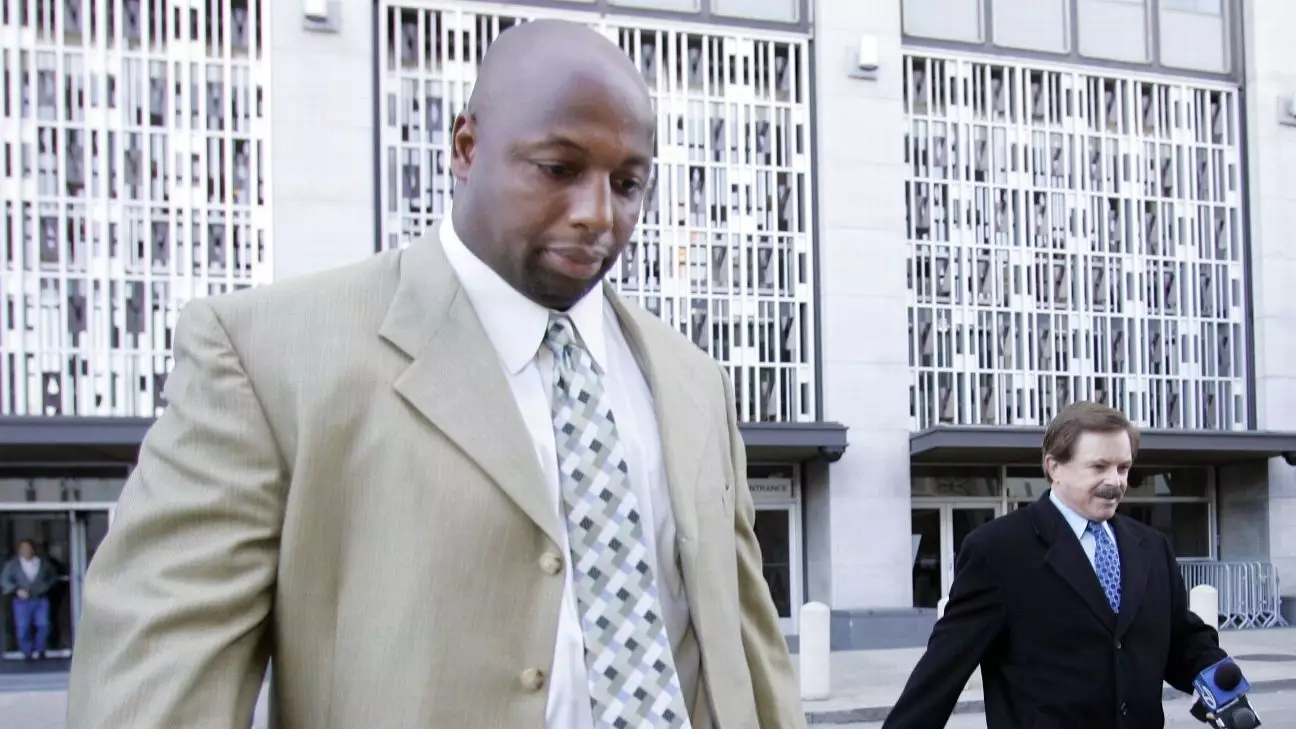The case of Dana Stubblefield, the former San Francisco 49ers star, exemplifies the complexities of the legal system, particularly when it comes to issues of racial bias, wrongful convictions, and the appeals process. With a tumultuous legal history, Stubblefield’s situation raises critical questions about justice, race, and the legal definitions surrounding consent and sexual offenses.
Stubblefield’s saga began in 2020 when he was convicted of raping a developmentally disabled woman, leading to a sentence of 15 years to life in prison. Prosecutors argued that Stubblefield lured the victim under the pretense of offering her a babysitting job, turning a seemingly innocuous situation into a life-altering tragedy for the victim and an equally life-altering situation for Stubblefield himself. However, the defense claimed that no coercion or rape occurred, insisting that the interaction was consensual and entailed an exchange of money for sexual favors.
The underlying tension in the case fundamentally pivots on the nature of consent, especially in contexts involving individuals with disabilities. Legal definitions can be murky in these circumstances, leading to contentious court proceedings that often reflect broader societal prejudices.
In December 2024, Stubblefield’s conviction was vacated largely due to findings that racial bias had influenced his trial. The Sixth District Court of Appeal identified specific instances of “racially discriminatory language” used by the prosecution, which led to the conclusion that Stubblefield did not receive a fair trial in adherence to the California Racial Justice Act of 2020. This act aims to prevent race from being a factor in criminal convictions and sentencing—a response to a growing consciousness around racial injustices, especially in light of protests against police violence that erupted after the murder of George Floyd.
Stubblefield, being a Black man, faced the dual burden of not only defending himself against serious charges but also contending with the implications of racial bias during his trial. The appellate court’s decision to vacate the conviction highlights the systemic issues that can compromise the integrity of legal processes, particularly for marginalized groups.
Despite the appellate court’s ruling, Stubblefield remains incarcerated as of the latest court hearing. The Santa Clara County Superior Court Judge Hector Ramon declined to issue bail, arguing that jurisdiction still lies with the Sixth District Court until they formally issue their remittitur—an administrative step necessary before the case can fully be reassessed in lower court proceedings. This procedural delay has raised questions about the efficiency and effectiveness of the legal system in rectifying potentially wrongful convictions.
Stubblefield’s legal team expressed frustration over the continued imprisonment of a man who has had his conviction vacated. They argue that he is, in essence, a legally innocent person awaiting a decision that is simply a matter of timing. The dichotomy between legal technicality and moral justice could not be more stark, drawing attention to the bureaucratic hurdles that often plague those entangled in the justice system.
As Stubblefield awaits the appellate court’s remittitur, the implications of his case extend far beyond his personal situation. It invites ongoing discussions about race, consent, and the efficacy of judicial processes in the United States. If Stubblefield’s conviction is ultimately overturned, it will not only alter his life trajectory but also reinforce the critical need for ongoing reforms aimed at addressing racial disparities within the justice system.
This case serves as a potent reminder of the intricacies intertwined with legal proceedings and societal perceptions of justice. It emphasizes the need for vigilance and reform in how we approach issues of race and justice—issues that require active engagement and a commitment to fairness, particularly for those facing the daunting realities of the criminal justice system. Stubblefield’s journey encapsulates a story that resonates with broader themes of equality, justice, and the human experience in the face of adversity.

